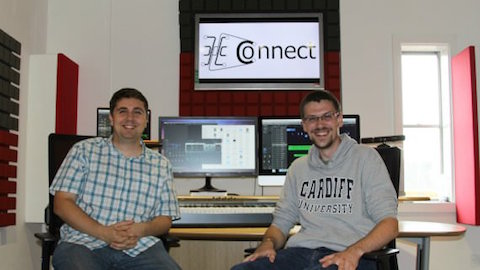ArtistShare describes itself as “the internet’s first fan funding platform” on its website. It was set up in 2000 by musician Brian Camelio as a response to “the threat of digital piracy and the futility of digital rights management for music”. Musicians on its books have since won six Grammy awards, including Maria Schneider herself, who became the first musician to win a Grammy with an album that was only available online.
ArtistShare is part of a growing trend within the music industry of bands departing from the traditional major label path. The crowd-funding philosophy of ArtistShare also forms the basis of websites such as Sellaband, which allows fans to fund professional endeavours in return for incentives like special access to the band or having their name included in the project’s credits or album sleeve notes.
Bristol-based Kochari is one such musician to distribute his work on music site Bandcamp. He has not set a price for any of his work on the site, and feels sites like Bandcamp are changing the dynamic of the music industry. “I’ve discovered so much music through it that I never would have heard before and you can really connect to your audience on a personal level,” he says.
At the other end of the scale, Radiohead released their In Rainbows album in 2007 and also allowed fans to pay whatever they wanted for it. Meanwhile, internationally known Amanda Palmer, formerly of The Dresden Dolls, raised almost $1.2m through a Kickstarter project involving close to 25,000 contributors. She elaborated on the crowd-funding concept in a TED talk in early 2013: “When you connect with them, people want to help you.”
The solution was, she said, to look at the problem in a new way: “I think we’ve been obsessed with the wrong question: ‘how do we make people pay for music?’ What if we started asking: ‘how do we let people pay for music?’”
Is this the way to save the music industry?
In an age of declining CD sales and illegal file sharing, some musicians are turning to new ways of plying their trade.
This will be the subject of a forthcoming public talk at Cardiff University’s Boyd Lecture Theatre. Dr Justin Williams of the University of Bristol will focus on jazz musician Maria Schneider and her work with record label ArtistShare, which allows fans to fund musicians and be rewarded in return.
“ArtistShare is pretty much questioning why the industry takes such a large cut,” he explains, pointing out that bands signed to the independent label can be paid up to 80% of the revenue they make, as opposed to around 10% with a major label after cost deductions.
This and more will be discussed at the talk on 3 December at 4.30pm.
[youtube]http://www.youtube.com/watch?v=Y9WarpOsvnE[/youtube]
A BBC News feature on Maria Schneider and ArtistShare, explaining how the record label operates
ArtistShare describes itself as “the internet’s first fan funding platform” on its website. It was set up in 2000 by musician Brian Camelio as a response to “the threat of digital piracy and the futility of digital rights management for music”. Musicians on its books have since won six Grammy awards, including Maria Schneider herself, who became the first musician to win a Grammy with an album that was only available online.
ArtistShare is part of a growing trend within the music industry of bands departing from the traditional major label path. The crowd-funding philosophy of ArtistShare also forms the basis of websites such as Sellaband, which allows fans to fund professional endeavours in return for incentives like special access to the band or having their name included in the project’s credits or album sleeve notes.
Bristol-based Kochari is one such musician to distribute his work on music site Bandcamp. He has not set a price for any of his work on the site, and feels sites like Bandcamp are changing the dynamic of the music industry. “I’ve discovered so much music through it that I never would have heard before and you can really connect to your audience on a personal level,” he says.
At the other end of the scale, Radiohead released their In Rainbows album in 2007 and also allowed fans to pay whatever they wanted for it. Meanwhile, internationally known Amanda Palmer, formerly of The Dresden Dolls, raised almost $1.2m through a Kickstarter project involving close to 25,000 contributors. She elaborated on the crowd-funding concept in a TED talk in early 2013: “When you connect with them, people want to help you.”
The solution was, she said, to look at the problem in a new way: “I think we’ve been obsessed with the wrong question: ‘how do we make people pay for music?’ What if we started asking: ‘how do we let people pay for music?’”





